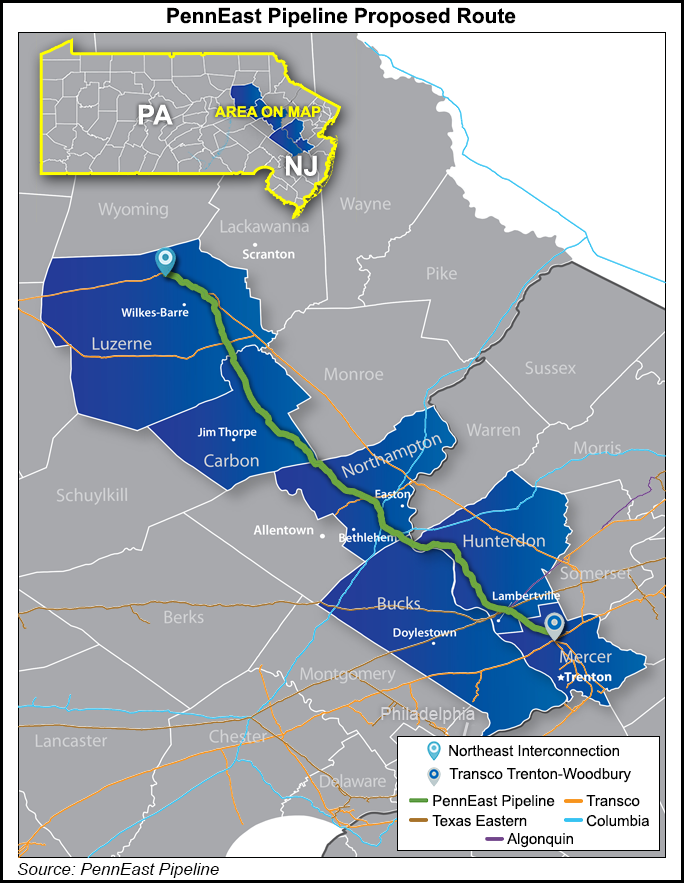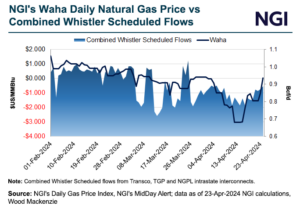Infrastructure | NGI All News Access | NGI The Weekly Gas Market Report
Supreme Court Seeking More Input on PennEast Battle with New Jersey
The U.S. Supreme Court on Monday asked the Solicitor General to weigh in on PennEast Pipeline Co. LLC’s battle to condemn state-owned land in New Jersey, an order that could potentially delay the high court’s decision to take the case.

PennEast petitioned the court earlier this year to review the U.S. Court of Appeals for the Third Circuit’s ruling that a FERC certificate issued under the Natural Gas Act (NGA) does not allow a private company to use eminent domain to seize state-owned land. The third circuit’s decision has prevented PennEast from condemning 42 parcels needed to move the pipeline project ahead.
The justices invited the Solicitor General to file briefs in the case, “expressing the views of the United States.” While a PennEast spokesperson signaled optimism that the high court could ultimately agree to hear the case, a decision isn’t likely anytime soon.
“We view this as incrementally negative from a timing perspective for PennEast because a decision on whether the Supreme Court will consider the case looks likely to be delayed for months,” said ClearView Energy Partners LLC in a note to clients on Monday.
PennEast obtained Federal Energy Regulatory Commission approval for the project in January 2018 and sued the state to condemn the land. New Jersey sought to dismiss the complaint for lack of jurisdiction, citing the Eleventh Amendment of the U.S. Constitution, which recognizes that states have sovereign immunity from lawsuits by private parties in federal court.
Certificates issued by FERC under the NGA generally allow private gas companies to take property by eminent domain. However, in its opinion, the Third Circuit said New Jersey’s sovereign immunity wasn’t revoked by the project’s certificate, nor has there been — as PennEast argues — a delegation of the federal government’s exemption from the state’s sovereign immunity.
Earlier this year, FERC granted PennEast’s petition for declaratory order by finding the project may condemn state-owned land as a certificate holder with the power of eminent domain. But ClearView said Monday that the high court’s order seeking additional input from the Solicitor General is an indication that the declaratory order wasn’t enough for it to take the case.
PennEast’s backers have argued that the case has nationwide implications as no interstate pipeline of any significant length can be built without crossing land where a state claims an interest. Spokesperson Patricia Kornick said Monday that 18 business, labor and consumer advocacy organizations have filed amicus briefs supporting PennEast’s petition because of the potential impacts the Third Circuit’s ruling could ultimately have.
About one-third of PennEast would be built in New Jersey’s Hunterdon and Mercer counties. It’s been in the works for roughly five years and has battled New Jersey at other turns, where it has also yet to secure key regulatory approvals. The system would move more than 1 Bcf/d of Appalachian natural gas into New Jersey and parts of Pennsylvania.
© 2024 Natural Gas Intelligence. All rights reserved.
ISSN © 2577-9877 | ISSN © 1532-1266 | ISSN © 2158-8023 |


